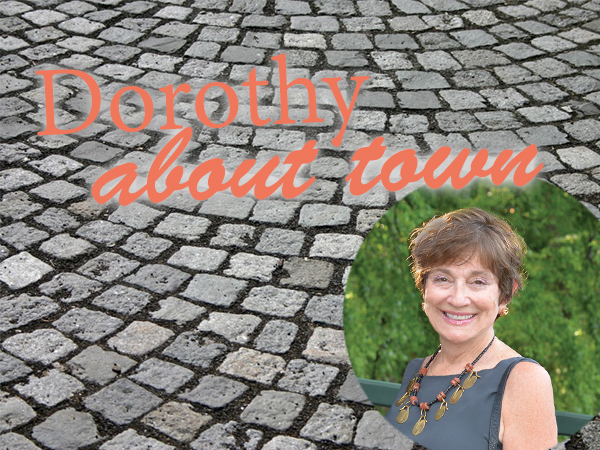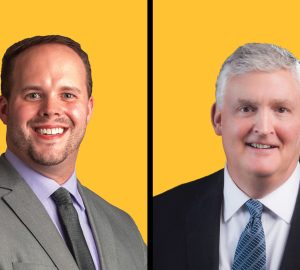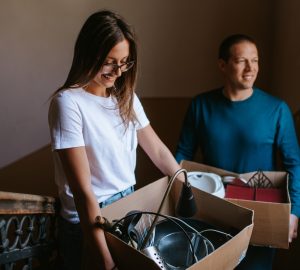If you’re already a fan of public radio, you know how great it is: thoughtful news analysis all day long, plus interesting on-air programs like Science Friday, The Moth Radio Hour and This American Life. If you’re not a listener, that could change once you realize just how much St. Louis Public Radio offers. For one thing, its home in Grand Center includes a remarkable outdoor communal area called the Public Media Commons, complete with two-story screens that provide a backdrop for all kinds of fun, from al fresco viewing of classic movies and Cardinals games to free tango lessons with scores of like-minded St. Louisans.
Indoors, there’s a Community Room that hosts some pretty cool programs, too, including a recent live broadcast of St. Louis on the Air featuring NPR Mideast correspondent Daniel Estrin. A graduate of Solomon Schechter Day School and Ladue Horton Watkins High School, Estrin has been reporting from the Middle East for more than 10 years for such venerable news outlets as the BBC, The World and the Associated Press.
About 100 people scored tickets to the special event, watching the hometowner being interviewed for an hour by the show’s host, Don Marsh. The $25 admission included boxed lunch from Butler’s Pantry, a pre-show presentation by Estrin and a meet-and-greet afterward.
It was a rare opportunity to hear directly from a reporter who has observed the Israeli-Palestinian world at close range for years. Plus, questions from the audience were encouraged. So what did Estrin have to say? For one thing, he wanted us to know that “there are clearly many other stories in the Middle East besides violence and tension.” His longtime goal, he said, was to tell stories about people, not ideas. “You meet so many voices out in the field, and the differences are not only between Israelis and Palestinians, but within in each group,” he said.
As for the current anti-media climate, Estrin said he has nothing but the highest regard for his colleagues, sharing with the audience what their ‘day-to-day’ is like. “We get up, we read all the news, we verify each fact. I’m calling officials and checking logs in hospitals. We’re out in the field under the hot sun for hours.” Nothing fake about that. When he was asked whether the seemingly endless conflict would ever get better, he responded with the proverbial good news-bad news answer.
“The good news is, Israeli food keeps getting better,” he said. “The bad news is that Israelis and Palestinians are becoming more isolated from each other. For generations they had contact with each other. They worked together. Not so now.” After decades of suicide bombings, police violence and encroaching settlements, Palestinians are rarely allowed into Israeli areas, and Israelis don’t venture into Palestinian ones. “As an American journalist, I’m really lucky I can go into Gaza ” he said. “It’s a privilege for me to be able to share their stories—both Israeli and Palestinian.” After the program, I felt the same way: It’s a privilege to be able to hear their stories. Thanks, public radio.









1 Comment
Comments are closed.